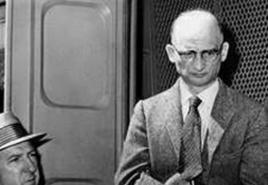Rambler how to forget unpleasant memories. Effective methods for forgetting the past
There were periods in the life of every person that I would like to erase from memory. Some, despite all the difficulties, pull themselves together and move to a new level, only occasionally remembering the shocks that have occurred, others cannot constantly think about the past, thereby depriving themselves of the chance to be happy in the present and future. It doesn't matter what burden of the past haunts you: parting with your loved one, missed opportunities, death of loved ones, betrayal of friends, feelings of guilt ... Now is the time to forget the past forever and start living in the present. How to stop living in the past?
Not thinking about the past: why doesn't it let us go?
Many people ask the question: why some people, having experienced very serious shocks and trials, recover quickly enough and begin new life, do others fall into a long-term depression and cannot stop living in the past after the unsuccessful completion of a two-month romance?
Psychology can give answers to this, here a lot depends on the age, the atmosphere in which a person lived in childhood, on the type of character and personality. And, even if you consider yourself to be a weak type, who takes any life trials close to your heart, it does not mean at all that you are not able to cope on your own and not think about the past.
Most often, we cannot forget the past and live in the present, as we feel our guilt for the current situation, we are tormented by the thought that we could have acted differently - and thereby change the ending ...
… Sometimes the past does not allow us to forget about itself, because we do not let go of past grievances, we believe that we were treated unfairly.
Our bad memories are like a suitcase full of useless junk that we habitually carry with us everywhere ... Do you need such a load?
... And sometimes it is impossible to forget the past and live in the present because we like this state of self-pity, we are not ready to change, grow, we are comfortable sitting in our shell, cherishing our grief, shutting ourselves off from the whole world around us. Here is such masochism. How can you change the situation and start enjoying life again?
How to forget the past and start living in the present: 5 steps to a happy life
Healing from old wounds is a difficult and often long process, but whatever lies behind our shoulders, each of us is able to stop living in the past. Here are the steps to help you get rid of your worries forever:
1. First step - realize that the past is the past, that it is the thoughts about it that interfere with fully living in the present, planning the future. Of course, this is not easy to do, but you really want to breathe deeply again, do you?
2. Step two - sorry. Now it does not matter who is to blame for what happened in the past, and who hurt you: you or hurt you. It is impossible to turn back the clock, everything has already been done, and your current suffering will not change the fact. Mentally ask for forgiveness or forgive, you can go to church. If you have offended the person and you know how to contact him, you can call and apologize. And that's all. Turn the page. People have the right to make mistakes: you and your loved ones are no exception. If you think that what you did earlier is too serious or you have no one to apologize to, switch to caring for others. You cannot change what happened, but you can help others and make their lives better. Volunteering in orphanages, nursing homes or animal shelters - think in this direction.
3. Step three - don't be sorry. Regretting lost opportunities, wasted time, broken relationships is a road to nowhere. Regret, as well as self-pity, are generally extremely destructive feelings. Try to look at the situation from a different point of view: you have gained experience, you have learned from your mistakes, you will no longer allow this situation to happen again in your life. And you know what else? Suffering and constantly pitying yourself, you destroy not only your life, but also the life of your loved ones, who find it hard to see you in such a state. Don't you feel sorry for them?
 Remind yourself often that our life goes only in one direction - to the future, nothing can be turned back. Thinking about what could have been is useless
Remind yourself often that our life goes only in one direction - to the future, nothing can be turned back. Thinking about what could have been is useless 4. Step four - reboot. If the pain is still fresh, you are bursting inside negative emotions, do not try to be strong, allow yourself one day to scream, cry, break the cup in the end. You can go to the gym and beat a punching bag furiously. Throw the pain out - this will make it easier to forget the past and start living in the present.
5. Step five - replacement rule. Think about how much time and energy you waste on nothing - not letting go of past grievances and feeling sorry for yourself. Instead, you could change for the better. To begin with, you can go to the salon, change your hair color, get a manicure, radically change your image, or search in the end. Sign up for driving courses, study foreign language, needlework. And most importantly, go in for sports. Perfectly eliminates unnecessary yoga thoughts. If you have new interests and hobbies in your life, there will simply be no room for regret and thoughts about the burden of the past.
In general, it seems to me that one of the most effective ways forget the past - to clear the physical space around you:, to conduct (read where p led me), to organize little things like books and ... past life you actually physically feel how life is changing!
Getting rid of the burden of the past and letting go of past grievances is much easier than you now think, the main thing is to start acting right now. In less than a few days, you will be drawn into a new, happy and interesting life.
In the life of any person there are things or occasions that he would like to forget. But the memory does not want to let go of these bad memories. These memories are so deeply embedded in the brain that the head cannot get rid of them. So how do you forget the past when it doesn't want to leave? What methods should be used to erase from the head what is not needed? How to clean your head of debris? More on that below!
It is usually said that while a person lives in the past, the future is closed to him. And in general, as long as a person lives in the past or the future, he is not in the present, and if a person does not live in the present, then he is not happy. If you are happy now, then you are definitely living in the present. Therefore, it is simply necessary to get rid of past memories, otherwise the door to a happy future is closed for you.
Why do you think a person remembers some events clearly and for a long time, while others forgets instantly? It's all about emotion. Man is primarily an emotional creature. And if one event caused a powerful surge of emotions, then this event is fixed in memory for a long time or forever. Those events that do not cause any emotions are quickly forgotten. And if you cannot forget something now, it means that something has caused strong emotions in you, and negative ones. It can be disappointment, resentment, and so on. This is what stuck in your head.
Forgetting the past on purpose is almost impossible. After all, when you consciously try to forget something, you thereby only remind yourself of any situation. Now if I tell you - do not think about the pink elephant - what will you think about? Probably about a pink elephant. In this case, the same thing happens. Hence the conclusion: the more we try to forget about something, the better we remember about it.
How to forget the past?
It so happens that some things, people and even familiar places of the city prevent us from forgetting the past. Whatever one may say, while all this is nearby, it will be difficult to forget the past. For example, suppose you are going through a difficult breakup with a girlfriend or boyfriend. You really want her or forget him. But as long as there is something that reminds you of her or his existence, you will not be able to forget. Therefore, the first and correct step will be getting rid of things that remind you of something negativethat you want to get rid of.
Try to avoid a place in the city in which any negative event took place. Perhaps your loved one left you at the cafe, or you were robbed on Tverskaya Street, or something else that is better not to remember. Walk around these places until you forget the past. Over time, it will become easier and you will again calmly walk where something unpleasant happened to you.
 Second tip - just wait... As they say: time heals. It really is. Any emotion, no matter whether it is positive or negative, it is still then replaced by another. In this case, there is no constancy. Time will pass and you will stop remembering any unpleasant event. You just need to get through for a while, and everything will settle by itself.
Second tip - just wait... As they say: time heals. It really is. Any emotion, no matter whether it is positive or negative, it is still then replaced by another. In this case, there is no constancy. Time will pass and you will stop remembering any unpleasant event. You just need to get through for a while, and everything will settle by itself.
The next option is rethink the past in such a way that it ceases to seem negative... It's no secret that negative experiences are more memorable than positive ones. And many people feel that they are no longer lucky than lucky. In fact, this is not the case. In the case of a negative event, try to make sure that it ceases to evoke negative emotions in you and is considered a failure.
For example, you were fired from your job, say seven years ago. Then you were very worried about this. But after being fired, you were forced to open your own business and start working for yourself. Now you have a gorgeous dacha, a car, and so on. What would have happened to you today if you had not been fired seven years ago? Now they would go to work with a salary of 20,000 rubles, they wouldn’t have such a beautiful car, dacha and the opportunity to relax. Therefore, that day must be considered successful.
Another example, a guy dumped you! So what? As if the world had come together like a wedge on him. By the way, a crowd of other guys has already lined up around you who found out about this. You just do not notice them due to the fact that you are suffering from separation. You see how the past interferes with the present, and therefore the future. So, I know many stories when girls did not hide the fact that after a difficult parting they met the guy of their dreams, for whom later. They, just like you, believed that they would not meet anyone else, and that they would remain lonely for life. Hell no! Then they all had a tip-top, and now they live happily and in harmony.
I know that now it is hard for you to see something good when everything seems terrible, but time will pass, and you will see for yourself. And now take a piece of paper, and start writing down the positive aspects of what happened... Who knows how your tomorrow's life would develop if you had not received this experience today.
 It helps most people to forget the past - a change of scenery... As I said, you better avoid places that remind you of something. If you take a vacation and fly to another country, then you are guaranteed to forget the past. It will be great if you are distracted during your vacation. During your vacation, you can get a pleasant and cheerful company, which with its positive will not let you think about the bad. Personally, it happened to me, and this can happen to you. A change of scenery is almost like starting life with a clean slate.
It helps most people to forget the past - a change of scenery... As I said, you better avoid places that remind you of something. If you take a vacation and fly to another country, then you are guaranteed to forget the past. It will be great if you are distracted during your vacation. During your vacation, you can get a pleasant and cheerful company, which with its positive will not let you think about the bad. Personally, it happened to me, and this can happen to you. A change of scenery is almost like starting life with a clean slate.
The next way is occupy yourself with something like that... Stop procrastinating on the same thing, it's already over. It's time to think about the future. and start reaching it. In the process, the brain thinks about only one thing -. The rest does not bother him. So take advantage of this unique moment.
And now the most powerful way to forget the past... This method is aimed not at forgetting it, but at remembering it. What I mean? There is a science called dianetics... So, her technique is very simple. You need to close your eyes and move mentally and experience that negative event until it ceases to evoke emotions in you. You scroll the event from start to finish in your head many times. In this way, you will erase engrams (such as programs associated with an event) in your head. Take two hours of your time and start reliving that unpleasant event over and over again. At the end of the session, it will become much easier for you, and you will simply become too lazy to think about that event (have thought about it).
That's all I wanted to say in the article. "How to forget the past?"... And remember, whatever happens to you, everything in your life will be just great. Good luck to you!
how to forget the past

| Like | |
Hello dear readers! Our whole life is a series of events. Some are forgotten instantly, while others are capable of causing pain for a considerable time. They spoil the mood, create negative feelings and complicate the future.
Today we will talk about how to forget unpleasant memories. You will learn how they are formed, how they actually affect your life, why you concentrate on them and how once and for all from your previous life.
Where do memories come from?
Typically, memories don't come from nowhere. They are caused by other people's words, new events, some objects with which you have a connection. They can be destroyed and created. One time we constantly think about rest, another we devote to a relationship with a person, the third unpleasant episode.

Your brain tries to keep close to information that matters to you, but it is unable to assess its "importance" itself. Therefore, if you often think about a certain moment, the brain assigns this situation the category "significant" and deliberately resumes the process at every opportunity.
In addition to frequency, intensity and emotionality are also important for the brain. We devote some thoughts longer, while others consider them "thoughtful up and down." These events fade into the background.
A person is not able to influence his own brain and change the category of significance of an event, but he can contribute to the fact that the memory will fade into the background. To do this, you need to try to devote as little time as possible to unpleasant thoughts from the past. You cannot get rid of a sudden impulse of thought, but calmly control the discussion: devote an hour or just a few minutes to it - it's up to you.
You won't find anything new if you keep pouring a problem from empty to empty. Perhaps you enjoy sharing your emotions and the state that triggers the event. Remember that the longer you continue to do this, the longer it will harm your psyche.

You need to release emotional attachment. It's real to do it.
Emotionality
More than once I came across articles from the Internet on psychology on this topic, in which people are advised to avoid places and events that cause unpleasant memories. I do not quite agree with this recommendation. Firstly, because most of the time it is rather difficult to do, and, secondly, it is not entirely correct.
Let's talk a little about pleasant things. The process is the same. Think back to your last vacation. When you were just returning from it, a TV program or the word “travel” from a friend's mouth evoked a wave of emotions, memories of the beach, the sea, cities and museums, and a long story about a recent trip. As time went on, the story became shorter, and the emotions were less.
Avoiding, and replacing some unpleasant emotions with others and continue. You increase the time to overcome. You carry a load in you, deliberately try to avoid certain places, drown out the pain. In doing so, notice that you do not stop thinking about the incident.

Sooner or later, you will have to face something that will cause a relapse, but if in the usual rhythm by this time it would not have begun to evoke so many feelings, then in the case of a long time it will become much brighter. You run the risk of not just facing an object that causes unpleasant memories, but face real fear.
Imagine you have a child and he is afraid of clowns. You try to protect it from the object in every possible way: do not go to toy stores, avoid circuses and public events. At 12, when he returns from school, he finally encounters a clown. Do you think he will forget about his phobia or will come running home pale in shock? Wouldn't it have been better to slowly teach him that there is nothing demonic about clowns?
Do not be afraid to face what revives in you, but try to talk and think about them less and less.
One frank conversation
First of all, you should discuss in detail the event from the past that triggers your emotions. Ideally, it would be nice to discuss it with a psychologist, but you can also talk with a friend.

Discuss to your heart's content, don't be afraid to share. You must speak out and achieve maximum results. You should not have unspoken thoughts that will continue to torment your soul. Decide everything so as not to keep looking for new conclusions.
I can also advise you a book Jose Silva "Mind Control", in which you will find real techniques in order to reduce the pressure of the event on the psyche, as well as many other valuable recommendations for improving life.

Until next time and don't forget to subscribe to the newsletter.
Sooner or later, each person is faced with such events that I would like to simply forget about. Fortunately, there are healthy ways to help yourself deal with negative memories, from techniques for getting rid of bad thoughts to methods of suppressing the anxiety that occurs when bad memories come up.
Steps
Part 1
Forming the right way of thinking- If you can completely eliminate contact with triggers of bad memories, over time the bad event will fade into your memory. You will have less reason to recall past memories, and life will replace them with more important thoughts.
- Of course, not all triggers can be completely ruled out, you may simply not want to change your path to work or donate your collection of sci-fi books to someone, or stop listening to songs of your favorite band just because the last time you saw the performers live. the night your ex told you to leave. If avoiding triggers is impossible, either because there are too many of them, or because you are unwilling to let the vagaries of your mind affect you so much, there are other ways to deal with memories.
-
Think about a bad event until the thoughts disappear by themselves. This step helps a lot. The first few times you remember something bad, negative memories can take you by surprise and leave you feeling anxious and devastated. You will instinctively try to avoid thinking about the event as much as possible, but suppressing memories can make them even more powerful when they do pop into your memory. Instead of chasing bad thoughts out of your memory, allow yourself to remember what happened. Think about it until the memories stop hurting you. In the end, you will stop thinking about them in the same volume, and when the memories do arise, they will no longer be painful. If the memories put a lot of stress on you, go for a long walk or engage in vigorous exercise.
- Try to take into account the fact that the event that is the root cause of the memory is long gone. Whatever happens to you (whether you are ridiculed to your embarrassment or you are in a dangerous situation) is in the past.
- In some cases, thinking about bad memories can become an obsessive habit. Analyze your own emotions that arise from bad memories. If you find that even after a long time thinking about events, the memories continue to hurt you, try other methods of getting rid of them.
-
Try the method of changing memories. Each time you remember something, the memories change slightly. The brain tries to fill in small gaps in memories with fictional information. You can take advantage of this feature of the brain and replace bad memories with other information. Eventually, an altered version of the memory will begin to emerge in memory.
- As an example, let's say that you have a childhood memory of riding with your father on the lake in a boat called Dream. You remember how your father stood aft in red shorts and sunglasses, how he screamed when you leaned too much over the railing and fell overboard into the water. You are sure that you know all this, but years later, looking at the photo of that day, you find that the father was wearing jeans, and the name of the boat was actually "Kingfisher". As you can see, memories are never completely accurate and can change.
- Try changing the part of the memory that upsets you. Based on the above example, if you remember your fear and loneliness when you fell into a lake, try to re-draw the memory in your mind so that your focus is on how amazing it was to be saved by your father.
- Each time the memory re-emerges, it will change slightly. If at the same time you always begin to concentrate on good feelings instead of bad, then the memory will begin to change accordingly. You may not be able to transform it from bad to amazingly good, but this way you can take away the pain of the memory.
-
Concentrate on happy memories. Sometimes the brain starts digging into bad memories so deeply that it becomes difficult to get out of it. If you find yourself thinking too much about the bad, try to learn how to switch to good memories. Don't give bad thoughts time to ruin your mood or make you worry. Instead, when a bad memory re-emerges in your memory, you will forcefully switch to a happier memory. Continue to practice positive thinking until you are automatically sucked into a quagmire of bad memories.
- Try to match the bad memory with a good pair. For example, if you are unable to stop remembering that you gave a slurred presentation to the class and everyone was laughing at you, supplement that memory with others when you did a good presentation and earned praise. Whenever a bad memory comes up, shift your thoughts to its positive pair. Having a positive memory prepared in advance will save you from having to panic and search for something good in your memory when you feel uncomfortable.
-
Learn to live in the present. The practice of paying more attention to the present moment in time is called being aware of the present moment. It involves focusing on what's happening here and now, instead of dwelling on the past or worrying about the future. Self-awareness is a great way to relieve stress and get more out of life. Instead of wasting time and energy worrying about what cannot be changed, you can take this burden off your shoulders and simply live in the present.
Part 2
Creating a positive attitude towards life-
Think about what you've learned from a bad moment in the past. Even the worst experience can teach you something. It may take a long time for you to understand what you have learned, especially if the event happened recently. But if you look back at it from the present and see how much wiser you have become since that moment, your bad memory may lose some of its pain. Think if there is something positive in that event that you did not notice before?
- Remember that negative experiences are an unavoidable part of life. Difficulties make a person stronger and help him appreciate pleasant moments more. If there were no bad things happening, it simply would not be possible to fully enjoy the good moments.
- Try to count everything that you are grateful for in life. Whatever your loss, expressed as a bad memory, make a list of things for which you are currently grateful in life.
-
Create new happy memories. Over time, the bad memory will gradually fade in your memory. But this process can be accelerated if you start living full life and create new good memories that will occupy your mind. Do what you enjoy and connect with people who make you happy. In the long term, the more positive the fresh memories are, the less significant the past negative thoughts will become against their background.
- It will be useful to visit places that you have never been before, so that you have new experiences that are in no way affected by your past. Buy yourself a ticket and go to a new city for yourself, or become a tourist in your own city, visiting places where you usually do not appear.
- If travel isn't your forte, change your routine in some other way. Visit a café you've never been to, cook some complicated dish, or invite all your friends over to your dinner party.
-
Lead a busy lifestyle. Maintain a busy schedule and try to stimulate your brain so that you have less time to think about the bad. If you tend to spend a lot of time alone with yourself, try to start seeing friends or visiting family more often. Take a break from reading a good book or pick a new hobby. The more time you spend sitting and doing nothing, the more likely you will be immersed in negative memories. Below are some distraction activities to keep you occupied.
Avoid alcohol and drug use. Mind-distorting substances can only make things worse, especially if a bad memory makes you feel depressed and anxious. Alcohol can increase depression, irritability and anxiety, especially in those people who already experience similar symptoms. To maintain a positive morale, it is best to completely stop or restrict alcohol and drug use.
Make your health a priority. When you are immersed in your own negative thoughts, it can be difficult to remember to take care of yourself. But taking care of your own health has a big impact on the way you think. Eating wholesome and nutritious foods, getting enough sleep at night, and exercising several times a week will provide a good foundation for keeping bad memories aside. In addition to meeting the basic needs of your body, take the time to pamper yourself to help ease the symptoms of anxiety associated with your bad memories.
Part 3
Overcoming traumatic experiences- Consider going to a support group. Try to find a local support group that is associated with the exact problem you are experiencing. For example, there are many support groups for divorce, relationship termination, chronic illness, and so on.
- If you are uncomfortable sharing your own story with someone else, write it down in your own journal and keep it in a safe place where no one can find it.
Try to burn out the memory. Recognize the negative memory and negative emotions associated with it. This may seem counterproductive, but psychocatarsis (the manifestation of your emotions) is a key component of mental wound healing. Suppressing bad memories will only lead to them re-emerging a little later and possibly becoming more intense. Allow yourself to feel angry, sad, embarrassed, or hurt. If you feel the need to cry or scream, do so. In the end, you will be able to switch to the other side of your feelings, which will be easier to come to terms with than if you ignore your own pain.
-
-
Consider psychotherapy sessions. If you feel a need for more help than a friend or relative can offer you, then going to a professional therapist is the right choice. Since the information discussed between the doctor and the patient is confidential, you do not need to hide something from the doctor or be shy in front of him.
Find out if you have post-traumatic stress stress disorder (PTSD). This disorder can develop after a terrifying and dangerous event, such as sexual abuse, a car accident, violent assault, or a debilitating illness. Trauma memories do not fade in people with PTSD. They are a source of constant anxiety that this situation could happen again. If you suspect you have PTSD, it is very important to seek help, as this is not an issue you can deal with on your own.
Avoid contact with objects and places that give you unpleasant memories. Have you ever noticed that unpleasant memories roll over you when you visit certain places or are near certain objects? Perhaps you yourself are not even aware that it is they that provoke your thoughts. For example, a bad memory might relate to an incident that happened to you in primary schooland it pops up in memory every time you walk by educational institution... But if you take a new route to work that doesn't run past the school you went to, you can be more successful in keeping your mind free of bad thoughts.
Greetings to all my readers and subscribers, and those who have just decided to join a large number of people engaged in self-development and their health. This article will talk about our negative memories, which sometimes like a "snowball" haunt us. We will learn to get rid of them effectively.
Every person in his life makes a lot of mistakes, and this is quite normal. We are not robots to do everything perfectly. But some people learn from them experience, while others engage in self-flagellation, remembering mistakes again and again.
Some, especially strong negative memories make a person feel awkward, shame or fear, and this is very bad from a psychological point of view. This greatly spoils the mood and on this basis it can, and it is very difficult to fight it.
It is common for any person to make mistakes in life, and the main thing is to learn how to extract positive moments from them and not dwell on the past. We hope that the following tips will help you to forget all the bad things in your life.
1 Learn to love yourself
It is necessary in any situation to accept yourself as you are, and not to drive into the rigid framework imposed by society. If you love yourself and begin to enjoy life, then it will also be favorable to you.
2 Stop obsessing over your problems and past failures
If you are constantly haunted by negative memories from the past and interfere with a normal life, you can try this psychological technique.
Present the problem in full force. You need to experience it again, only this time in your thoughts. Remember all the details, sensations. Try to make it as vivid and natural as possible. After you have reached the maximum visual perception, imagine the problem in the form of some image that came at that moment.
Observe it from the sidelines, carefully peering into the details and after a while mentally remove it from your head, thinking about something good. You can then fix the result, for example, push-ups from the floor. This technique of replacing negative with positive is used in the army. And it works well.
3 Look at future problems and troubles from a philosophical point of view
It never happens that everything goes like clockwork. Any person has problems, both in the past and in the future. The difference between successful people and losers is their scale.
When a car breaks down and there is no money for its repair, one person can be completely demoralized, and a professional military man, for example, can fight for his life and be in an almost hopeless situation, but at the same time.
All problems are relative, and mean exactly as much as we attach importance to them.
4 Technique "Draw a problem"
Of course, many of us are not artists, but if negative memories persist, grab a piece of blank paper and sketch out the problem. Draw the first thing that comes to your head. This works in the same way as the previous technique, only with the help of graphics it is possible to work out the image more strongly. After you have drawn it, burn the sheet. After a few sessions, the experience should decrease significantly.
After completing these exercises, think about good things. Life is great if you treat it in a positive way! Good luck to you!







